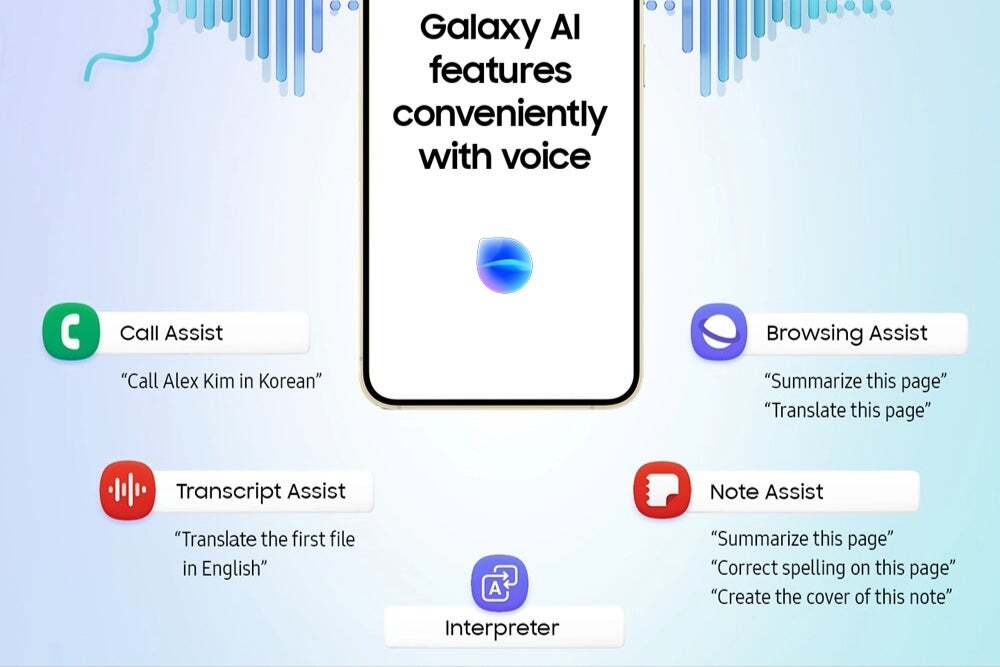Furthermore, the report indicates that the camera and keyboard are key areas of focus for AI integration. AI could enhance camera functionality by automatically adapting to different environments and user preferences, such as switching to night mode or adjusting settings based on location. For keyboards, AI could personalize typing by learning individual writing styles and word preferences, leading to more accurate auto-predictions.
This shift towards AI-driven optimization builds upon existing trends in smartphone development. We are already seeing this with many smartphone features, such as adaptive battery, charging, brightness, and touch — among other things.

Some of the AI features already used on Galaxy devices using Bixby. | Image credit — Samsung
For the average user, AI-managed settings could streamline the smartphone experience by reducing the need for manual adjustments and menu navigation. However, Samsung will need to address potential privacy concerns and clearly communicate its data collection and usage practices for AI adjustments to gain user trust and encourage adoption.
Should the information contained in the report be something Samsung has in its immediate plans, the removal of the Settings menu is not likely to happen immediately. While no official timeline has been announced, the beginnings of this shift could potentially be included in Samsung’s next major software update with One UI 7.
